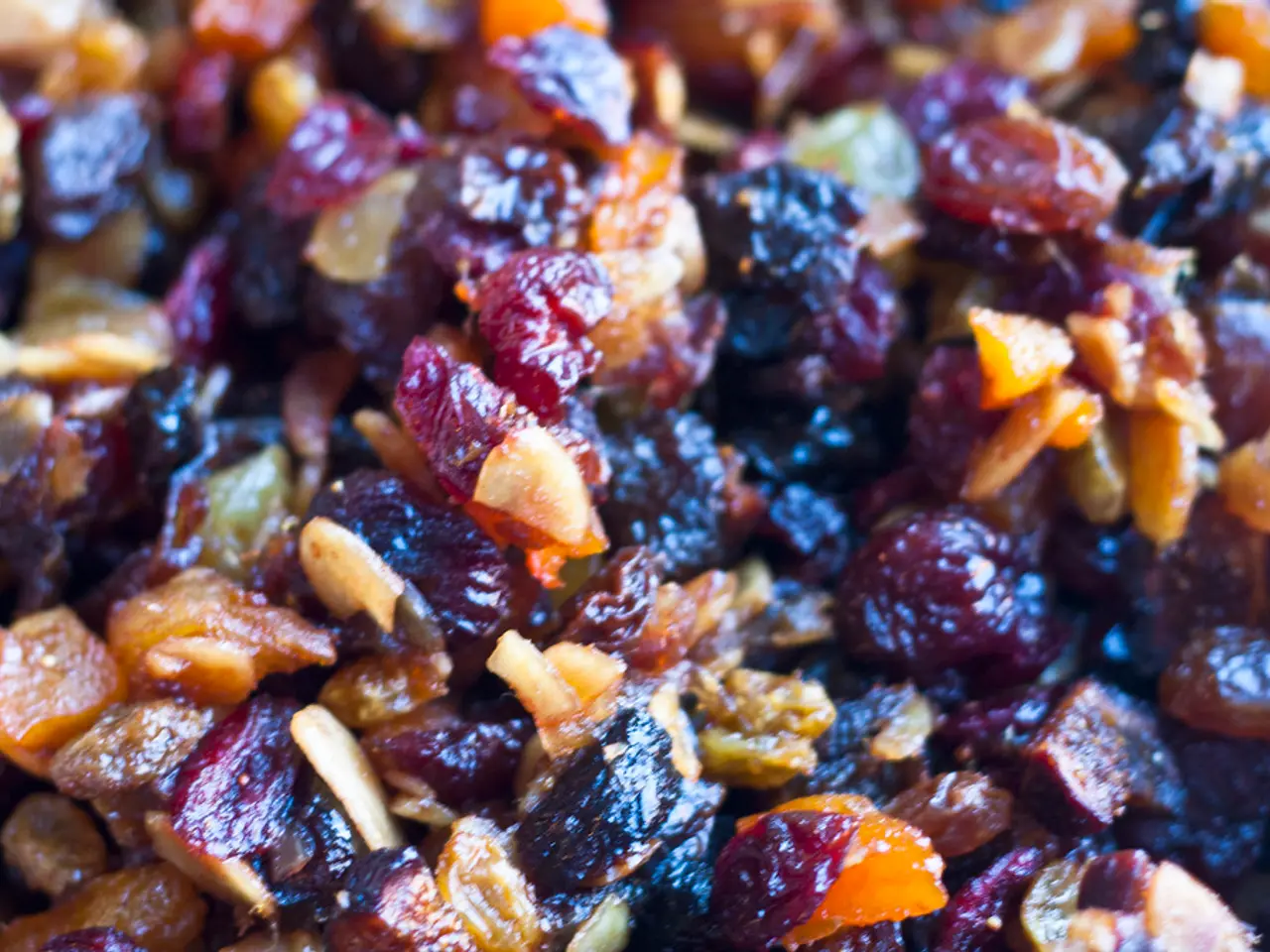Top Oils for Optimal Health
In the world of cooking oils, making the right choice can significantly impact your health and the taste of your meals. Here's a breakdown of four popular oils: coconut oil, olive oil, canola oil, and vegetable oil, along with their unique benefits and potential drawbacks.
Coconut oil, known for its high smoke point of up to 450°F (for refined coconut oil), makes it an excellent choice for high-heat cooking like frying and sautéing. Unlike many seed oils with polyunsaturated fats, coconut oil remains stable under heat, reducing the risk of harmful oxidation byproducts.
One of the standout features of coconut oil is its rich content of medium-chain triglycerides (MCTs), which are rapidly metabolized into ketones, providing a quick energy source for brain and metabolic functions. This may aid cognitive function and stabilize energy levels. Additionally, MCTs have antibacterial properties, supporting gut health, improving digestion, and aiding absorption of fat-soluble vitamins. They may also help treat digestive conditions like IBS and Crohn’s disease.
However, coconut oil is predominantly saturated fat, which traditionally raises concerns about increasing LDL cholesterol and cardiovascular risk if consumed excessively. While coconut oil is stable at high temperatures, replacing unsaturated fats (like those in olive and canola oil) with coconut oil may not benefit heart health, as liquid plant oils are generally recommended by the American Heart Association to reduce cardiovascular risk.
Olive oil, on the other hand, is rich in monounsaturated fats, providing heart-protective benefits. It has a moderate smoke point (~375-410°F) and remains stable under heat to a certain extent. Olive oil is also rich in antioxidants, offering protection from oxidative stress in the body.
Canola and vegetable oils are high in polyunsaturated fats, which can be less stable under high heat and may produce harmful aldehydes. However, they are generally heart-healthy if not overheated, and canola oil is often recommended as one of the better oils for frying due to its low polyunsaturated fat content.
When comparing the nutritional value of these oils, all four provide the same number of calories per tablespoon (126 calories). Cold-pressed, extra-virgin olive oil has antioxidant properties stronger than those of vitamin E, while extra virgin olive oil is highest in monounsaturated fats. Canola oil has low levels of saturated fatty acids and high levels of unsaturated fats.
In a clinical trial known as the PREDIMED study, researchers observed lower rates of cardiovascular problems in people following the Mediterranean diet with either extra virgin olive oil or nuts, compared to a control diet. This underscores the heart-protective benefits of olive oil.
In conclusion, coconut oil is better suited for high-heat cooking and offers unique metabolic and antimicrobial benefits due to its MCT content, but its high saturated fat content means it should be consumed in moderation, especially for those monitoring cardiovascular health. Olive oil and canola/vegetable oils are richer in unsaturated fats that generally support heart health and reduce inflammation, but may be less stable under very high-heat cooking. Choosing the right oil depends on cooking methods and personal health goals; ideally, one can use a combination of oils—coconut oil for high-heat cooking and olive oil for dressings and low-heat applications to maximize benefits and minimize risks.
- Coconut oil, a popular choice for high-heat cooking like frying and sautéing, is known for its high smoke point and stability under heat.
- One of the standout features of coconut oil is its rich content of medium-chain triglycerides (MCTs), which aid cognitive function and energy stabilization.
- MCTs in coconut oil also have antibacterial properties, supporting gut health, improving digestion, and aiding absorption of fat-soluble vitamins.
- However, coconut oil is predominantly saturated fat, which may raise concerns about increasing LDL cholesterol and cardiovascular risk if consumed excessively.
- Olive oil, rich in monounsaturated fats, provides heart-protective benefits and remains stable under heat to a certain extent.
- Canola and vegetable oils, high in polyunsaturated fats, can be less stable under high heat and may produce harmful aldehydes.
- However, these oils are heart-healthy if not overheated, and canola oil is often recommended for frying due to its low polyunsaturated fat content.
- In the PREDIMED study, a clinical trial, lower rates of cardiovascular problems were observed in people following the Mediterranean diet with either extra virgin olive oil or nuts compared to a control diet.
- In health-and-wellness and skin-care circles, olive oil is often recommended for its antioxidant properties, making it a popular choice for various global cuisines, cooking, lifestyle, and food-and-drink preferences.
- When considering personal health goals and cooking methods, it's ideal to use a combination of oils—coconut oil for high-heat cooking and olive oil for dressings and low-heat applications, to maximize benefits and minimize risks.




